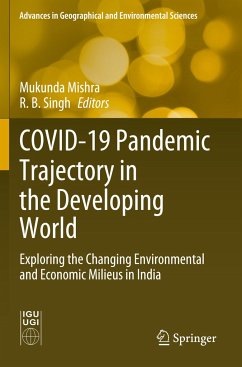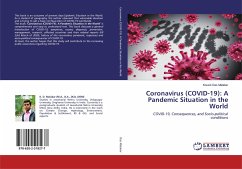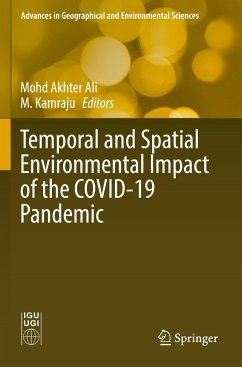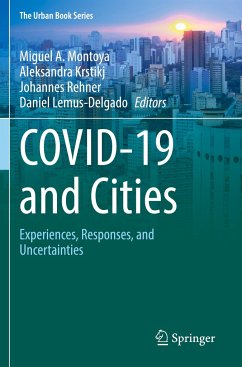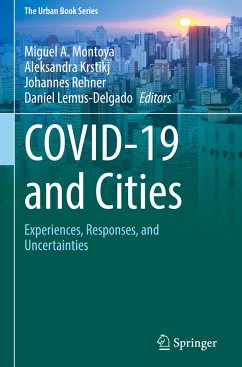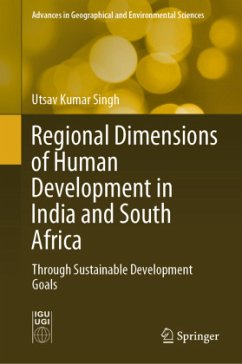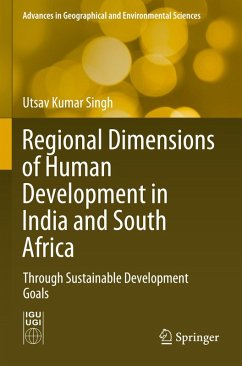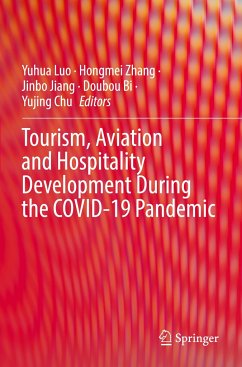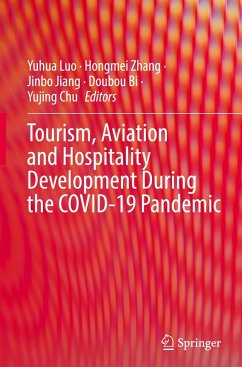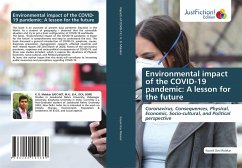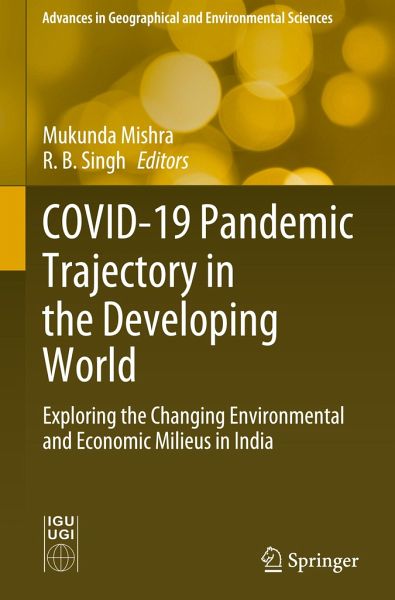
COVID-19 Pandemic Trajectory in the Developing World
Exploring the Changing Environmental and Economic Milieus in India
Herausgegeben: Mishra, Mukunda; Singh, R. B.

PAYBACK Punkte
61 °P sammeln!
We are witnessing an unprecedented global outbreak of COVID-19, which has been devastating in its consequences. Beyond the acute health hazard, the pandemic has carried with it other threats for mankind associated with the human economy, society, culture, psychology and politics. Amidst these multifarious dimensions of the pandemic, it is high time for global solidarity to save humankind.Human society, its ambient environment, the process of socio-economic development, and politics and power - all are drivers to establish the world order. All these parameters are intimately and integrally rela...
We are witnessing an unprecedented global outbreak of COVID-19, which has been devastating in its consequences. Beyond the acute health hazard, the pandemic has carried with it other threats for mankind associated with the human economy, society, culture, psychology and politics. Amidst these multifarious dimensions of the pandemic, it is high time for global solidarity to save humankind.Human society, its ambient environment, the process of socio-economic development, and politics and power - all are drivers to establish the world order. All these parameters are intimately and integrally related. The interconnections of these three driving forces have a significant bearing on life, space and time. In parallel, the interrelationship between all these drivers is dynamic, and they are changed drastically with time and space. The statistics serve to align the thought, based on which social scientists need to understand the prevailing equation to project the unforeseen future. The trajectory of the future world helps in planning and policymaking with a scientific direction.The practitioners of all academic disciplines under the umbrella of the social sciences need a common platform to exchange ideas that may be effective in the sustainable management of the crisis and the way forward after it is mitigated. This book provides multidisciplinary contributions for expressing the solidarity of academic knowledge to fight against this global challenge. It is crucial that there should be an on-going discussion and exchange of ideas, not only from the perspective of the current times but keeping in view the preparedness for unforeseen post-COVID crises as well.



